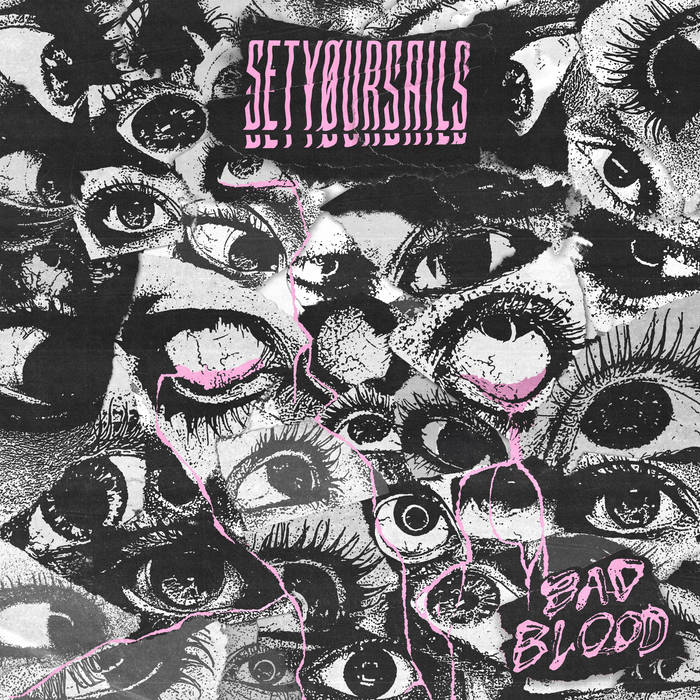From there, the band’s twisted history reads something like a Greek tragedy. Loss, betrayal, the weight of expectation, record labels collapsing, an album that didn’t see the light of day for fifteen years, shifting cultural and marketplace sands and not least of all, the changing mores of a fickle and digitally diffusing audience.
Through it all, PM5K (as fans will forever know and refer to them,) has persevered, with a lot of different iterations of the band. The look, feel and sound have all changed with the ages, including a brief whirlwind return dalliance with the spacesuits.
It would be impossible for Poweman 5000 to be the band they were a quarter century ago, and it would additionally be unfair to ask them to be. Try to think of all the bands you’ve ever heard who are the same in their fourth decade as they were in their first. I’ll spot you two: AC/DC and Overkill. …And, I think we’re done here.
With all that said, Powerman 5000’s new album “Abandon Ship” might be as close to the band we remember from 1999 as any of their records in the interim. It is, in many ways, the band’s attempt to have their cake and eat it, too – an amalgam of all the band’s variants into one blended whole.
For surely, “Invisible Man” and the self-referential “1999” sound like cuts we would have heard at the dawn of this new millennium. All the hallmarks are there in abundance; the thin guitar, the chunky, unreal overdrive when the rhythm hits, the omnipresent beat superseding beyond all. Spider’s whispered vocals are equal parts coaxing and threatening, imprinting his idiomatic presence into his band’s fabric like a signature. Through it all, the descending scales that so colored Powerman’s most memorable efforts. It’s truly these haunting tones that takes the listener back in memory, that makes “The Company Loves Misery” sound like a twenty-first century, matured version of “They Know Who You Are.”
Not to be confined to one idea, Spider returns to his beat-driven, pop-based dreams for the marching cadence of “This is a Life” and the energetic two-step of “Dancing Like We’re Dead.” All of a sudden, we’ve nostalgically moved away from the halcyon days to the wild experimentation of “Somewhere on the Other Side of Nowhere,” and the turbo-industrial pop of “Builders of the Future,” replete with stuttering, machine-gun guitars to accentuate the corners in the breakdown. The changes in style are subtle but unmistakable among the learned.
For all that achievement though, there’s a cut almost halfway down the album where the worlds truly collide (sorry, I had to.) “Wake Up Take Up Space” is the album’s heart and soul and center – a song where every album Powerman 5000 has ever released leaves its mark on a single three-minute piece of music. (Well, except for maybe “Transform” and “Destroy What You Enjoy.”) It’s got the signature chug, the singalong chorus, the overdriven downbeat, the pounding insistence that fans crave from the band, all eras rolled into one, highlighted by Spider’s monotone menace. If it took twenty-five years to write this song, it was worth it.
And then at the end (for the CD release, anyway,) a (very slightly) re-imagined version of “Bombshell,” a holdover single from 2001’s “Anyone for Doomsday?” an album who’s history is convoluted enough to deserve it’s own Wikipedia page. This song must surely feel like unfinished business to Spider; in the wake of the band’s multi-platinum superstardom, “Bombshell” is the follow-up single that never was. Some of it was no doubt band timing. As Spider said to me in an interview some years ago, who knows if anyone would have even played a song called “Bombshell” in the aftermath of 9/11. Nevertheless, the song has remained in the band’s setlists all these years hence, and here it is again.
On the silver anniversary of an all-time genre classic, we are faced with an album that to some degree attempts to re-create that fateful spark. Critics may suggest that “Abandon Ship” is perhaps a little into an unyielding mold in that regard, but the resultant shoe certainly fits, and Spider and company seem comfortable enough wearing it. In an era where all media seems consumed by the perceived sure thing of capitalizing on nostalgia, “Abandon Ship” offers us another permutation of the only workable and worthy template for success in that space – allowing us to fondly remember the past while still giving us something new to bite into.






